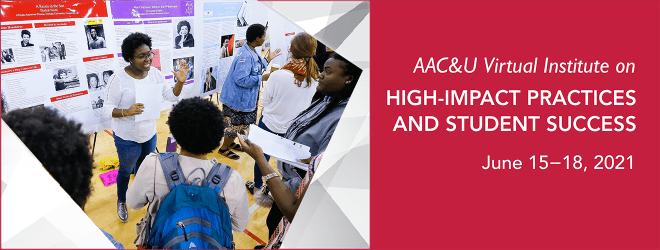Six educators who participated in a National Institute on High-impact Practices and Student Success want to apply some of what they learned to improve student engagement, equity and the quality of learning at Clemson University.
The institute, put on by the Association of American Colleges and Universities, included education experts and participants from 61 universities that were selected to participate, including Clemson.
The three-day virtual event “helped our Clemson team to think through opportunities for continuing to advance engaged learning with our Clemson students, one of the core priorities of ClemsonForward,” said Bridget Trogden, associate dean in the Division of Undergraduate Studies. “We have several tasks we will be pursuing with our faculty and staff colleagues to continue providing our students with a top-notch education.”
The institute aimed to advance campus- and system-level efforts to achieve quality, equity and student engagement goals through the design, implementation and assessment of active teaching and learning practices widely known as high-impact practices, according to the association.
Along with Trogden, other Clemson participants were David Vaughn, professor of practice and director of Clemson Engineers for Developing Countries; Kyle Anderson, senior director for Global Engagement, Office of Global Engagement; Troy Nunamaker, chief solutions officer, Center for Career & Professional Development; Jennifer Ogle, associate chair and professor of Civil Engineering; and Johannes Schmidt, professor of German.
“Of no surprise to any of us, there was a lot of positive energy around the engagement work that is already occurring on Clemson’s campus as well as some intense and productive brainstorming in how to take Clemson’s high-impact practices to the next level,” Nunamaker said.
The Clemson team’s homework during the institute included looking holistically at the University’s high-impact offerings and brainstorming ways to take them to the next level.
“We identified gaps related to high-impact practices taxonomy on campus, disparate data collection, evaluation activities and opportunities for collaboration, promotion and reporting that will assist us in achieving our ClemsonFoward Engagement goals,” Ogle said.
“As a faculty member I am hoping and anticipating Clemson will improve its current high-impact courses and opportunities and expand them to reach all students,” Schmidt said. “I am especially encouraged because the humanities will have to play a vital role in this endeavor, which permeates throughout all colleges and units on and off campus.”

